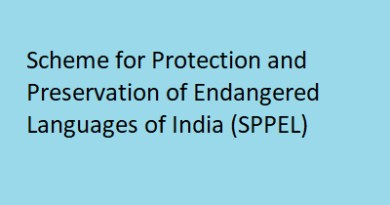Government of India Act of 1919

Government of India Act of 1919 also known as Montagu-Chelmsford Reforms/Montford
Contents
Historical Background:
- Aggressive policy of Indian Leaders like Lokamanya Tilak’s Swaraj Movement
- Immense pressure from Indian masses for the Indian autonomy.
- Lucknow Pact: Agreement between INC and Muslim League in December 1916
- Demand by INC and ML to increase the number of elected seats on the councils.
- Demand of Separation of the executive from the judiciary
- On August 20, 1917, the British Government declared, for the first time, that its objective was the gradual introduction of responsible government in India.
- The sole purpose of this Act was to ensure Indians of their representation in the Government.
Provisions of Government of India Act of 1919
- Demarcating and separating the central and provincial subjects, it relaxed the central control over the provinces
- ‘Division of Subjects’: Further divided the provincial subjects into two parts—transferred and reserved subjects
| The provincial subjects | |||
| Transferred subjects | Governor with the aid of ministers | Responsible to the LC | Education, health, local government, industry, agriculture, excise ,etc |
| Reserved subjects | Governor and his executive council | Not responsible to the LC | Law and order, finance, land revenue, irrigation ,etc |
- “Diarchy“: The Act introduced diarchy (rule of two individuals/parties) for the executive at the level of the provincial government.
- The diarchy was implemented in eight provinces:
- Assam, Bengal, Bihar and Orissa, Central Provinces, United Provinces, Bombay, Madras and Punjab.
- Bicameral Legislature: For the first time, bicameralism and direct elections in the country
- CLC divided into two—- Upper House (Council of State) and Lower House (Legislative Assembly 145)
- The majority of members of both the Houses were chosen by direct election
- It granted franchise to a limited number of people on the basis of property, tax or education(17364)
- Women were also given the right of vote (not entitled to become its members)
- Three members of the Viceroy’s executive Council (other than the commander-in-chief) were to be Indian.
- Providing separate electorates for Sikhs, Indian Christians, Anglo-Indians and Europeans
- Created a new office of the High Commissioner for India in London
- The establishment of a public service commission
- Central Public Service Commission was set up in 1926 for recruiting civil servants
- The formation of Public Account Committee (1921)
- The appointment of a statutory commission to inquire into and report on its working after ten years of its coming into force
Simon Commission
- November 8, 1927; Indian Statutory Commission
- To review the working of the Act of 1919
- Head: Sir John Simon
- Seven Members
- All the parties boycotted the commission
Recommendation:
- Submitted its report in 1930
- Recommended the abolition of dyarchy
- Extension of responsible government in the provinces
- Establishment of a federation of British India and princely states
- Continuation of communal electorate and so on
Further Events:
- Three round table conferences
- ‘White Paper on Constitutional Reforms’
- Joint Select Committee of the British Parliament
- Government of India Act of 1935
- Communal Award: In August 1932, Ramsay MacDonald extended it to the depressed classes (scheduled castes)
- Poona Pact
Source: M. Laxmikant
Discover more from Simplified UPSC
Subscribe to get the latest posts sent to your email.



